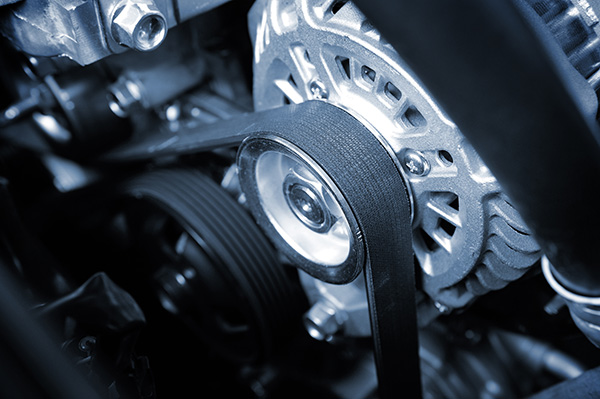
That high-pitched squeak you hear when starting your car or accelerating may seem harmless at first—but it’s often a warning sign that your engine’s accessory belt needs attention. Ignoring it can lead to more than just an annoying noise. Over time, it could leave you stranded with a failed belt and no functioning alternator, water pump, or power steering.
If your vehicle’s belt has started squealing, here’s what could be causing it and why it’s best not to wait to have it checked out.
What That Squeaking Sound Means
Most squeaks come from the serpentine belt—a long, continuous belt that powers several key engine components. It connects to pulleys on the alternator, air conditioning compressor, power steering pump, and water pump. If the belt isn’t gripping the pulleys properly, you’ll hear a squeal, especially during startup, rapid acceleration, or when turning on the A/C.
These noises are usually caused by slipping due to wear, incorrect tension, or contamination like oil or coolant on the belt.
Common Causes of a Squeaky Belt
Belt wear is one of the most frequent culprits. Over time, the rubber degrades and loses flexibility, causing it to slip on the pulleys. Glazing—when the belt surface becomes shiny and smooth from friction—is another indicator that it’s no longer gripping effectively. Temperature changes, moisture, and normal usage all accelerate wear, especially in older belts.
Tension is another key factor. If the automatic tensioner begins to weaken or seize, the belt may lose the proper amount of tension. This slack can lead to squeaking, especially under load. In systems that use a manual tensioner, it might simply need adjustment.
Contaminants like oil, coolant, or even road grime can reduce the belt’s ability to grip. If the belt has recently been exposed to a leak, it may squeak until cleaned or replaced.
Why It Shouldn’t Be Ignored
Even if the noise seems minor now, belt failure can happen suddenly. When a serpentine belt breaks, it takes down everything it drives—meaning you’ll lose charging from the alternator, engine cooling, and power steering assist all at once. That can result in a dangerous situation, especially if it happens while driving.
The squeak is the system’s way of telling you something’s not right. Addressing it early can save you from unexpected repairs and roadside breakdowns.
What to Expect During Inspection
When a belt-related noise comes into the shop, our team inspects the belt for cracks, glazing, wear patterns, and contamination. We also check the tensioner for proper pressure and look over the pulleys for misalignment or wobble. If the belt needs replacing, it’s usually a quick fix—but catching a failing pulley or worn tensioner early can prevent larger problems down the line.
Routine inspections during oil changes or seasonal checkups can help catch these issues before they cause major inconvenience.
Dave’s Automotive – Belt System Care You Can Count On in Stockertown, PA
At Dave’s Automotive in Stockertown, PA, we help drivers stay ahead of unexpected belt problems with thorough inspections and quality repairs. If your engine is starting to squeal, don’t wait for it to snap—schedule a visit with our team and keep your car running quietly and reliably all year long.